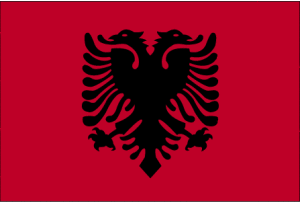A New EU Member? Albanian Candidacy for Union Membership
After four rejections within the last five years, Albania was named a candidate for European Union membership in June of last year. In the meantime, Johannes Hahn, the current Commissioner for European Neighborhood Policy & Enlargement, has advised Albania to continue pursuing permanent governmental reforms and battle corruption. In June of 2003 the Thessaloniki European Council deemed Albania potentially able to pursue candidacy and, eventually, accession to the European Union. The main obstacle in Albania’s journey to EU membership has so been the country’s rampant corruption, and the proliferation of organized crime, both of which need to be resolved through strict governmental control. By addressing these issues, Albania would effectively demonstrate its ability to become a successful member state.
A former-Communist state, Albania still holds scars from its turbulent past. The late 1990s, although heralded as a new era for the Balkan country, were marked by economic turmoil, violent mass revolts, the Kosovo crisis, and a constant battle between Democratic and Socialist leaders for government leadership. Albania entered the new millennium no less troubled than in previous decades. The UN urged international aid to neutralize fatal chemicals in the Albanian environment, and constant turmoil diminished the credibility of the ruling Socialist party. Thus 2003 marked the beginning of what has been, and will most likely remain, a long and difficult journey for Albania.
Although EU membership is now in sight, emigration of Albanians to current EU member countries is worryingly high, prompting the implementation of the National Strategy on Migration by the Albanian government. The Strategy requires Tirana to encourage the return and reintegration of Albanian migrants into society while simultaneously addressing “the root causes of migration.” European leaders view the reintegration of Albanian migrants into their native environment as essential to the country’s development. If migration from Albania does occur, the government will have to prove its legality and take many preventative measures against the possibility of human trafficking.
Interestingly enough, many of the migrants thought to be Albanians are actually Kosovars that claim Albanian Muslim ethnicity, and are seeking political asylum outside of their controversy-ridden state. Albania and Kosovo are very closely related. They share a communal economic space, and were the first among the international community to recognize the other’s sovereignty; facts that remain hotly debated in European politics. The migration issue reveals the painful struggle of Kosovar Albanians as they attempt to understand their place within the Republics of Albania and Kosovo. Nevertheless, reintegration of these immigrants is necessary for both Albania’s future success, as well as the overall well-being of members of the European community.
As Albania exerts at least some effort into its candidacy and respects the terms set forth by the EU, future membership should be assured. By taking these steps, the Balkan state ensures its natural development and future success by way of integration into the European Union, even if actual membership may remain very long way away.


